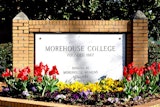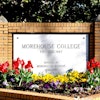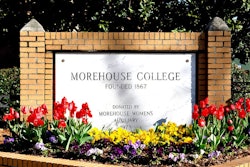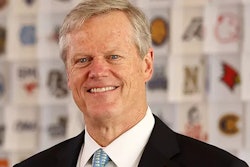The college graduation rate for women student athletes playing for NCAA Division I schools in the 2012 national tournament continues to be significantly higher than that for their male counterparts, and the graduation gap between Black women and their female White peers remains narrower than that for Black and White male student-athletes, says a new report issued Wednesday.
“Keeping Score When It Counts,” the annual analysis of NCAA graduation and academic achievement data performed by The Institute for Diversity and Ethics in Sport, found an 88 percent overall graduation rate for women, compared to 67 percent for men.
As important, the report says, the gap between graduation rates for Black women student-athletes and their White counterparts was 8 percent compared to the 28 percent gap it found between male Black student-athletes and their male White counterparts on Division I tournament teams.
White female basketball student-athletes on the Division I tournament teams graduate at a rate of 93 percent compared to 85 percent for Black women basketball student-athletes, the analysis found. White Male basketball student-athletes on tournament teams graduate at the rate of 88 percent, compared to 60 percent for their male Black counterparts, the study found.
The study sample is of schools that qualified for this month’s 2012 NCAA Division I tournaments. It was based on graduation data for the 2004-2005 cohort of student-athletes enrolled in those schools. It uses a six-year graduation scale, as does the NCAA.
Dr. Richard Lapchick, institute director and primary author of the annual study, and Education Secretary Arnie Duncan, the highest ranking government official to champion higher expectations of college programs for student-athletes, praised the findings in the new report and used its issuance to again call on colleges across the nation to take note and do better with the education of male student-athletes.
“All we’re asking for is a healthy balance” between emphasis on athletic and academic achievement, says Duncan, a former college athlete who touts himself as a “huge believer” in college sports.
“Raising expectations and raising the bar is always the right way to go,” Duncan added, taking time to heap high praise on the NCAA brass for their “moral leadership driving much needed change.”
During Wednesday’s news conference via telephone hookup, Duncan declined to directly answer a reporter’s question regarding whether he thought schools that failed to meet current NCAA academic standards (Academic Progress Rates) should be barred from March Madness competition this year. Duncan responded by saying schools that don’t meet NCAA criteria “going forward” won’t be going to the NCAA tournaments.
In response to another question regarding his advocacy that the NCAA put more of its funds into academic programs for student-athletes who are underperforming, Duncan says he hoped the NCAA would do so. At that point he stressed that the NCAA was doing much better in this area than the separate Bowl Championship Series (BCS) teams that compete in the highly lucrative football post-season games.
“They’re not even in the game,” Duncan says of the much wealthier BCS. “I publicly challenge them to put money behind these students,” Duncan says.
In Wednesday’s study on women student-athletes, the institute found that 98 percent of women’s teams (63) compared to 60 percent of men’s teams (39) graduated at least 60 percent of their members, a gap of 38 percent.
At the opposite end of its spectrum, the institute found that none of the Division I women’s teams—compared to 7 percent (5) of the men’s teams—had graduation rates of less than 40 percent.
One hundred percent of the women’s tournament teams in this year’s NCAA Division tournaments graduated at least 50 percent of their basketball student-athletes” in the cohort of years studied, says Lapchick, whose institute is based at the University of Central Florida.
“Women’s teams continue to achieve at this high rate,” says Lapchick. By comparison, 79 percent of the men’s teams in the 2012 NCAA Division I tournaments graduated at least 50 percent of the basketball student-athletes for the comparable years studied.
The institute study did find areas that it identified as “more distressing” results.
For example, it found that the Graduation Success Rate (GSR) on 11 women’s tournament teams (19 percent) had a 30 percent or more gap between the graduation rates for its White female basketball student-athletes than their Black women peers on the same teams.
As for the Academic Progress Rate (APR), used by the NCAA to determine what schools can quality for post-season tournament play, the study found that three women’s teams—McNeese State, Prairie View A & M, and University of Tennessee-Martin—failed to meet the current 925 measure, equal to about a 50 percent graduation rate. The APR is designed to measure a school’s progress over time in improving the academic performance and thus likely graduation success rates of its students.
The overall study reflects another year of “good news,” says Lapchick, noting the women’s “Keeping Score When It Counts” report consistently finds encouraging trends with women student-athletes regarding graduation and academic progress.
Athletic officials say the outcomes are rooted in myriad reasons.
For starters, many schools are recruiting male students whose academic performance is frequently secondary to their athletic performance since the male students are more likely being courted for revenue-producing programs such as football and basketball. They also say that women student-athletes are usually going to college for different academic reasons than most of their male student-athlete counterparts. Fewer women than men have their eyes set on going into a professional sports career after graduation.
“It’s a reflection of the general student body,” says Shelley C. Davis, Senior Associate Athletic Director at Howard University, echoing the sentiments of others. “It shows an ability to balance.”















